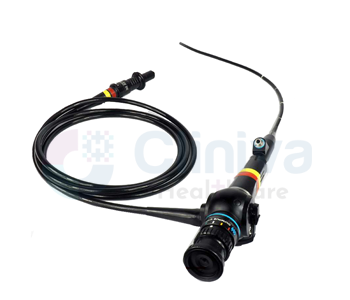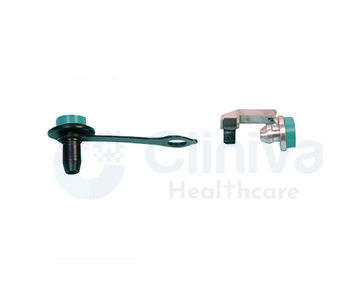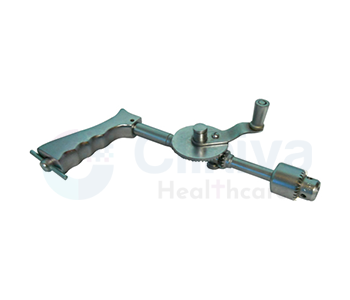General Surgery Instruments
Cliniva Healthcare is known as the leading General Surgical Instruments manufacturer, offering a wide range of surgical instruments. Our general surgery instruments are reliable and offer the best surgical experience to healthcare professionals. Made from premium materials, these instruments provide long lasting performance and durability. Moreover they are easy to use and provide maximum accuracy. Our set of general surgical instruments is available at market leading prices and we deliver globally. Our surgical instruments are highly trusted and appreciated among customers. You can also contact us or send your requirements to us.
Importance of General Surgical Instruments
Surgical instruments are the backbone of any medical operations, playing an important role in ensuring precision, performance, and patient safety. Among the many classes of scientific equipment, popular surgical equipment stand out due to their versatility and frequent utilization in diverse surgeries. Whether you are a healthcare professional, a scholar within the medical subject, or just curious, expertise in these equipment is important.
What Are General Surgical Instruments?
General surgical instruments are equipment mainly designed to aid in appearing surgical responsibilities, ranging from making incisions to last wounds. These units are made from excessive-grade stainless steel, ensuring sturdiness, sterilization compatibility, and resistance to corrosion.
Some Common Surgery Instruments
some of the common general surgery instruments set list given as below:
Cutting and Dissecting Instruments:
These contraptions are used to reduce tissues, dissect anatomical structures, or make specific incisions. Examples encompass:
- Scalpels: Sharp blades used for incisions; available in various dimensions and shapes.
- Scissors: Mayo scissors (for heavy tProblems) and Metzenbaum scissors (for delicate tProblems) are normally used.
- Bone Cutters: Layouted for orthopedic surgeries.
Grasping and Holding Instruments
These tools keep tissues or surgical materials in the area at some stage in processes. Examples consist of:
- General Forceps: General forceps are available in diverse forms like tissue forceps, dressing forceps, and thumb forceps.
- Clamps: Hemostatic clamps (e.G., mosquito or Kelly clamps) are used to govern bleeding by gripping blood vessels.
Retracting Instruments
Retractors help surgeons preserve tissues or organs to provide better visibility and get entry to.
- Handheld Retractors: Requires an assistant to keep them in the area.
- Self-maintaining Retractors: Designed to live in a role on their own.
Suturing and Stapling Instruments
These are important for remaining wounds or surgical incisions.
- Needle Holders: Used to hold suturing needles securely.
- Surgical Staples: Provide faster wound closure in comparison to sutures.
Suction and Irrigation Instruments
To keep a clear surgical subject, those tools are essential.
- Suction Tubes: Remove fluids, such as blood or irrigation liquids.
- Irrigators: Flush out the surgical website online for higher visualization.
Dilating and Probing Instruments
These are used to discover wounds or frame cavities and dilate tissues.
- Dilators: Used to widen slim passages or openings.
- Probes: Help verify the depth of wounds or discover overseas objects.
Quality in General Surgical Instruments
The quality of general surgery instruments at once affects the final results of a method. Poorly crafted tools can result in complications, which includes tissue harm, infection, or prolonged surgery time. High-exceptional devices make certain:
- Precision: Enables surgeons to perform tasks with greater accuracy.
- Durability: Withstands repeated sterilizations and utilization.
- Safety: Reduces the risk of contamination or damage to sufferers and the medical body of workers.
Key Factors to Consider When Choosing Surgical Instruments
- Material: Opt for stainless steel or titanium for sturdiness and corrosion resistance.
- Design: Ergonomic designs lessen hand fatigue and improve management.
- Sterilization Compatibility: Instruments need to be smooth to clean and sterilize without damage.
- Manufacturer Reputation: Choose instruments from trusted surgical instruments suppliers to ensure excellence and reliability.
Maintenance and Care for Surgical Instruments
Proper care of surgical equipments extends their lifespan and ensures top-quality performance. Here are a few upkeep recommendations:
- Cleaning: Remove debris and blood without delay after use.
- Sterilization: Follow widespread sterilization protocols, inclusive of autoclaving or chemical sterilization.
- Inspection: Regularly check for damages like stupid blades, free joints, or corrosion.
- Storage: Store contraptions in clean, dry surroundings to save you contamination.
Innovations in General Surgical Instruments
The clinical subject is constantly evolving and is a surgical instrument. Contemporary advancements include:
- Minimally Invasive Tools: instruments organized for laparoscopic or robotic operative procedures
- Smart instruments: Prepared with sensors to bid real-time records astatine around point inch techniques
- Disposable Instruments: Reduce the danger of go-contamination and eliminate the need for sterilization.
Contact General Surgical Instruments Manufacturer
General surgical instruments are fundamental within the scientific field, serving as the muse of a successful surgical procedure. From scalpels to retractors, each device has a specific cause that contributes to patient care and safety. Choosing super devices, preserving them nicely, and staying updated with improvements are vital for healthcare experts.
By making an investment in reliable general surgery instrument, healthcare vendors can supply the highest trend of care, making sure higher consequences for his or her sufferers and enhancing normal surgical performance.























